
Best AI for Writing Legal Documents in 2026

With the rapid advancement of artificial intelligence (AI), you may wonder, “Can AI draft legal documents like a seasoned attorney?”
Today, AI legal writing tools can help you with drafting, reviewing, and editing legal documents so you can focus more on client strategy. In this guide, we explore the best AI legal writing tools in 2026 and how to use them to streamline legal work.
Key Takeaways
- AI enhances legal efficiency by automating drafting, editing, and research.
- Legal writing tools can significantly reduce contract turnaround times by 40%.
- Human oversight is essential to ensure accuracy, compliance, and the ethical use of AI.
Best 5 AI Tools for Writing Legal Documents: Quick Comparison
Some AI legal writing tools excel at contract drafting while others specialize in research or niche practice areas. Here's a side-by-side comparison to help you quickly identify which tool fits your specific legal workflow.
Top 5 AI Tools for Writing Legal Documents
If legal drafting or contract review takes up much of your time, consider using these AI legal writing tools to help improve your efficiency:
Spellbook
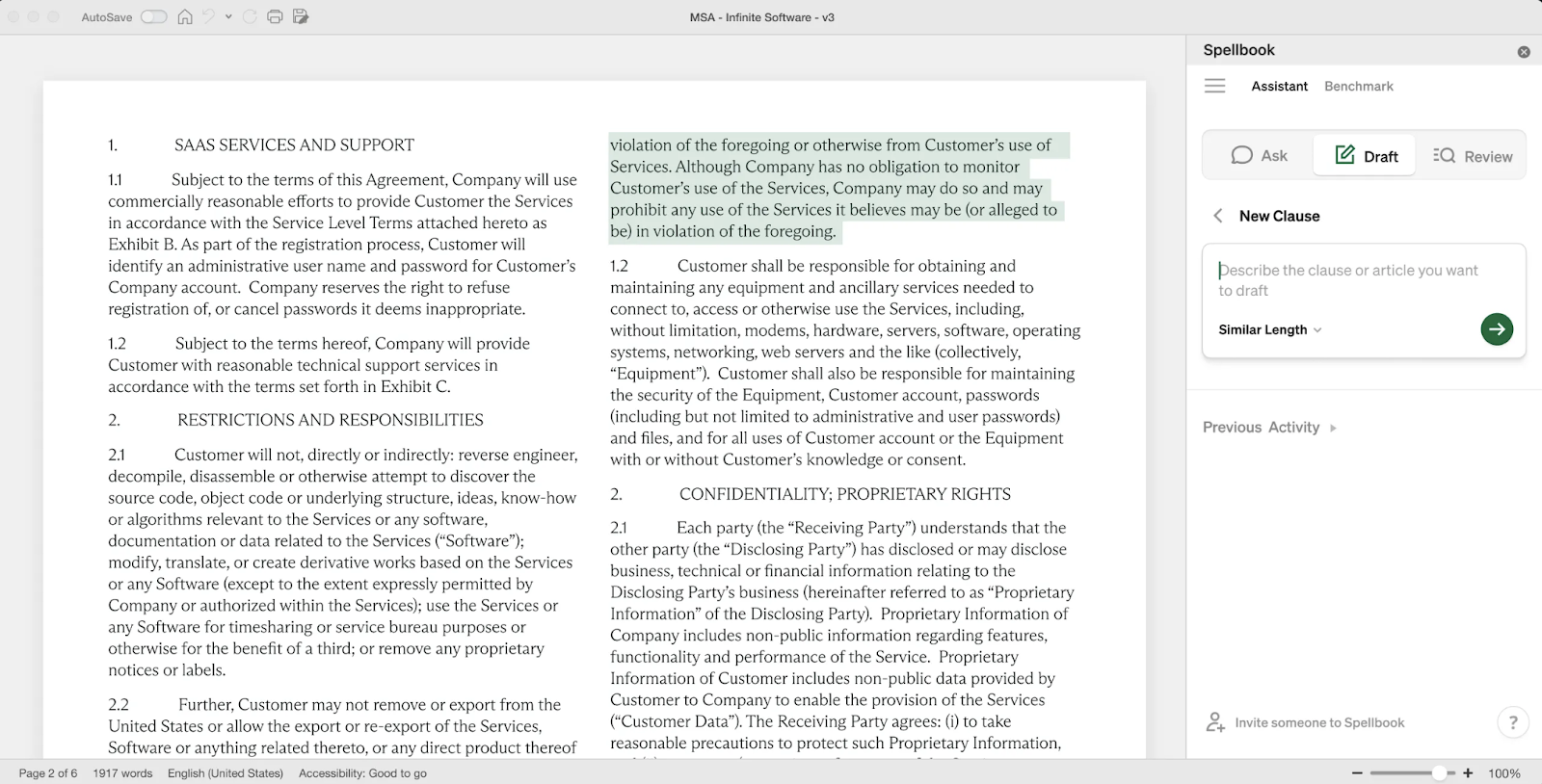
Spellbook integrates seamlessly with Microsoft Word for contract drafting, redlining, and real-time suggestions where you already work. Draft and review contracts 3x faster. Spellbook also:
- Generates entire contracts and legal clauses through its Clause Library.
- Proofreads legal content for errors and reviews legal text for ambiguities and consistency.
- Provides instant summaries of key details in legal documents.
- Adapts documents to meet specific jurisdictional requirements.
- Translates legal documents between languages.
- Has a built-in ‘Ask’ feature to help you answer your questions about the document
More than 3,000 law firms use Spellbook. It powers teams at ebay, Nestlé, and Crocs to make legal work more efficient.
Paxton
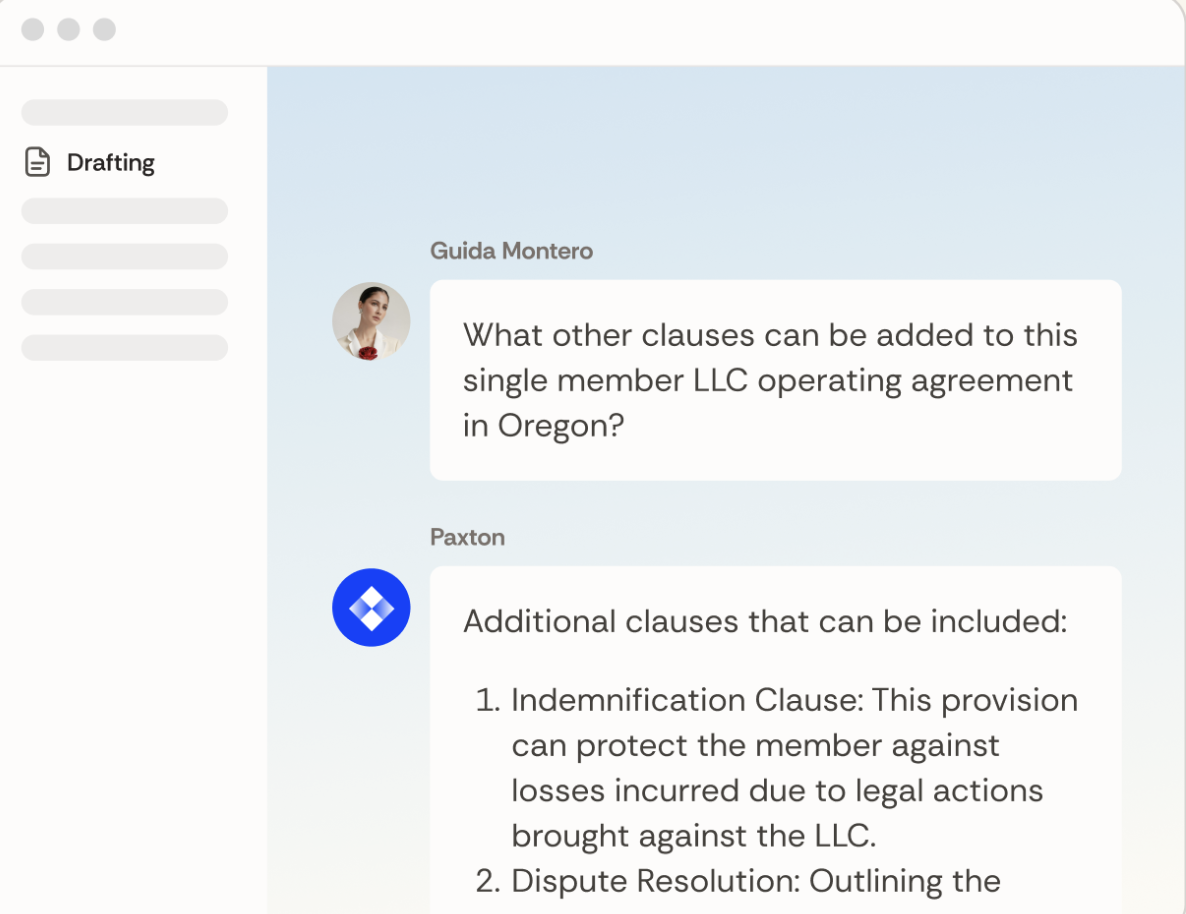
Paxton is a web-based AI assistant for contract review, drafting, and legal research. It runs on a proprietary legal language model and offers a ChatGPT-like interface. Paxton provides a user-friendly chatbot for law students and firms, unlike other technical AI tools that can be difficult to learn.
EvenUp
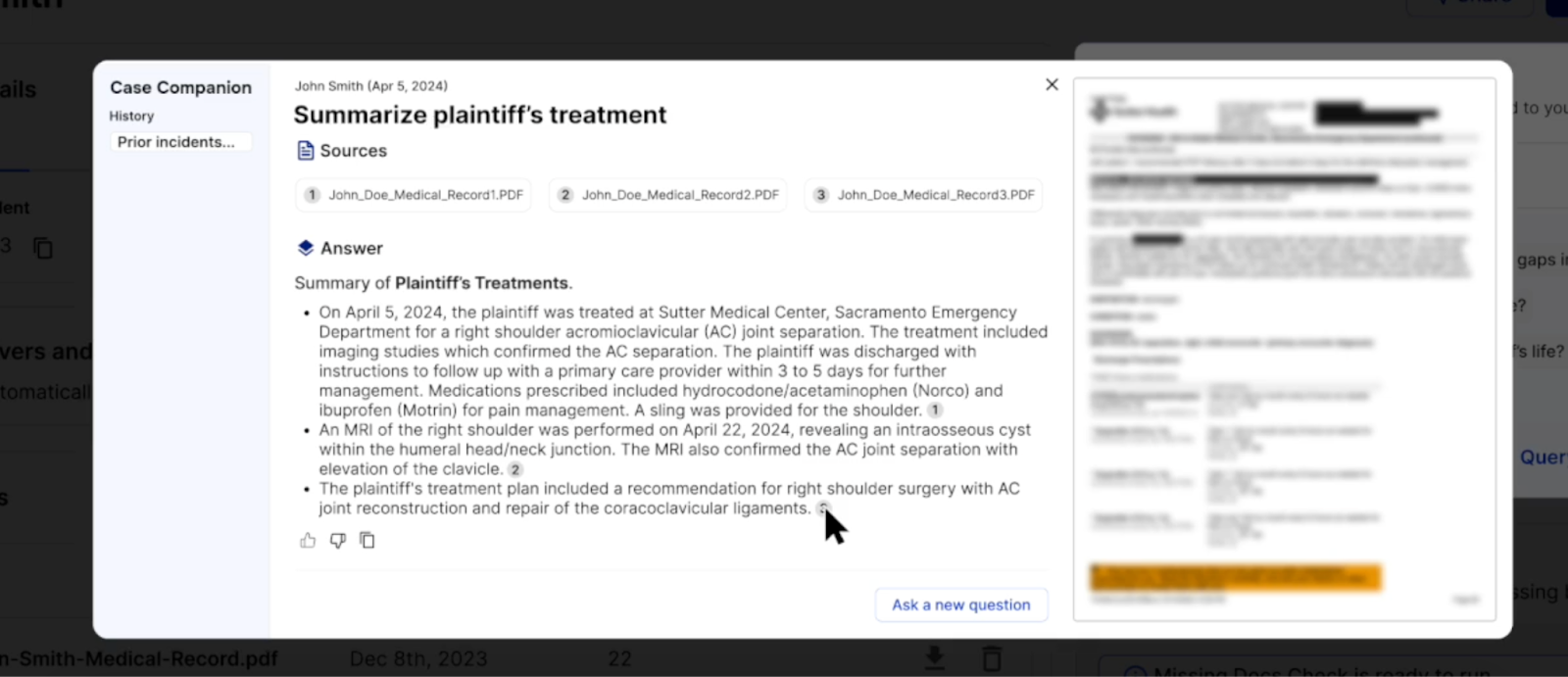
EvenUp is an AI-driven claims platform for personal injury law firms. It generates demand letters, medical chronologies, and performance insights. It specializes in personal injury cases, whereas other tools tackle general law.
Legal Robot
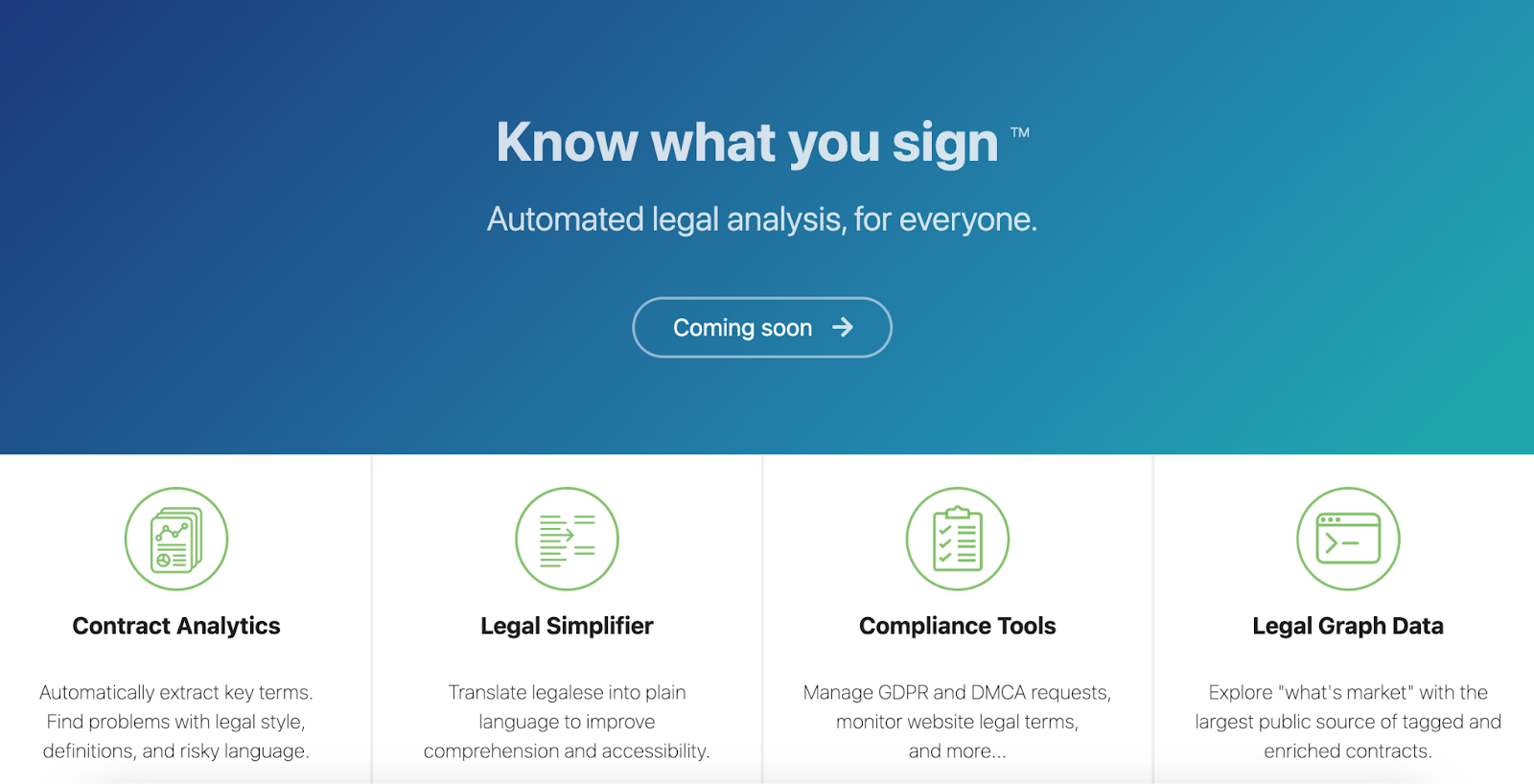
Legal Robot utilizes advanced linguistic analysis to assist in contract review. It analyzes legal writing style and simplifies complex legal jargon, translating legalese into plain language.
However, Legal Robot solely focuses on language analysis and may lack broader features, such as drafting or legal research aid, compared to other platforms like Spellbook.
CoCounsel
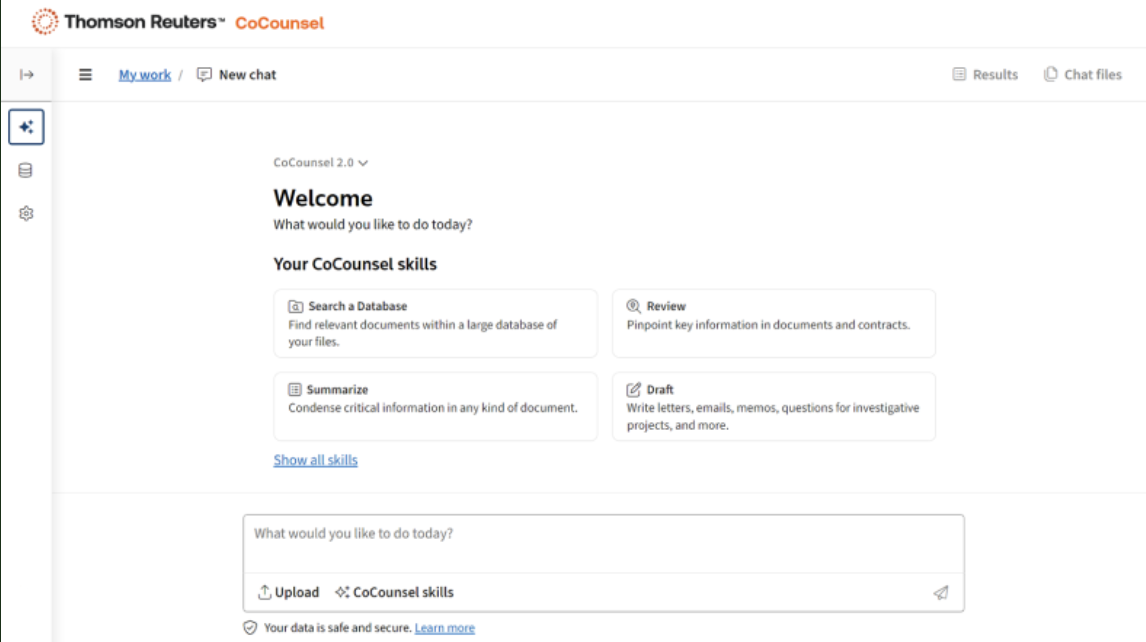
CoCounsel by Thomson Reuters is an AI chatbot for legal professionals, offering AI-driven litigation support and document analysis. Like Paxton, it also features a ChatGPT-style interface but with context-aware responses backed by Thomson Reuters’ legal database.
Key Applications of AI in Legal Writing
If you think AI can only help writers, content creators, or researchers, think again. Here’s how and when to use AI for legal writing:
1. Drafting Legal Briefs and Documents
Traditionally, drafting legal documents can take hours. AI automates the creation of legal briefs, contracts, summaries, and other documents, helping to reduce your manual efforts while improving clarity and compliance.
For example, the legal writing tool Spellbook suggests precise, concise, and accurate legal phrasing for you to use as you work in Microsoft Word.
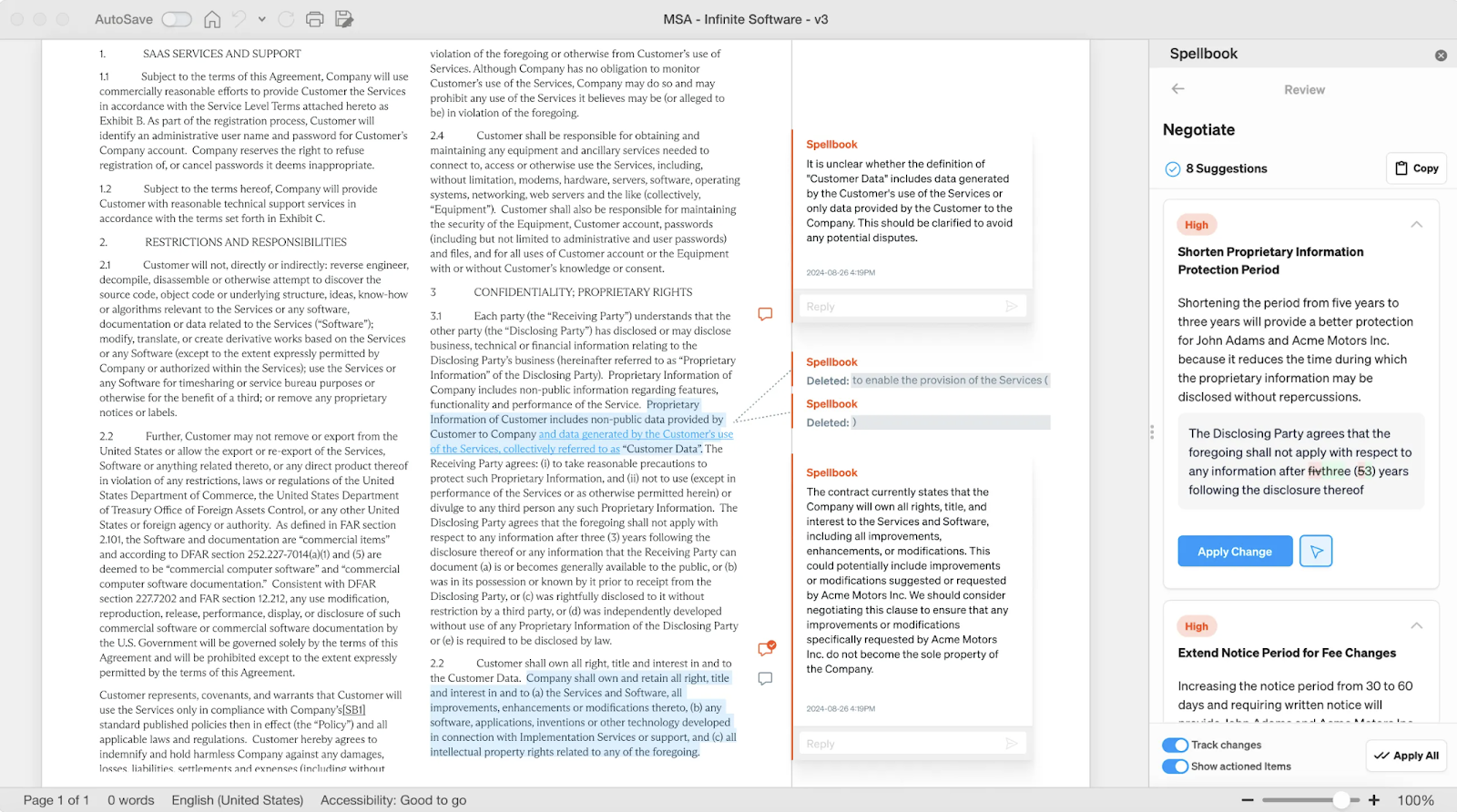
After you draft a document, Spellbook can highlight any clauses that may be unclear or subject to misinterpretation. You can easily correct the language to ensure your document is error-free.
If you're staring at a blank screen, wondering where to begin, Spellbook also automatically drafts legal documents from scratch. Another option is to choose pre-written clauses from Spellbook’s clause library.
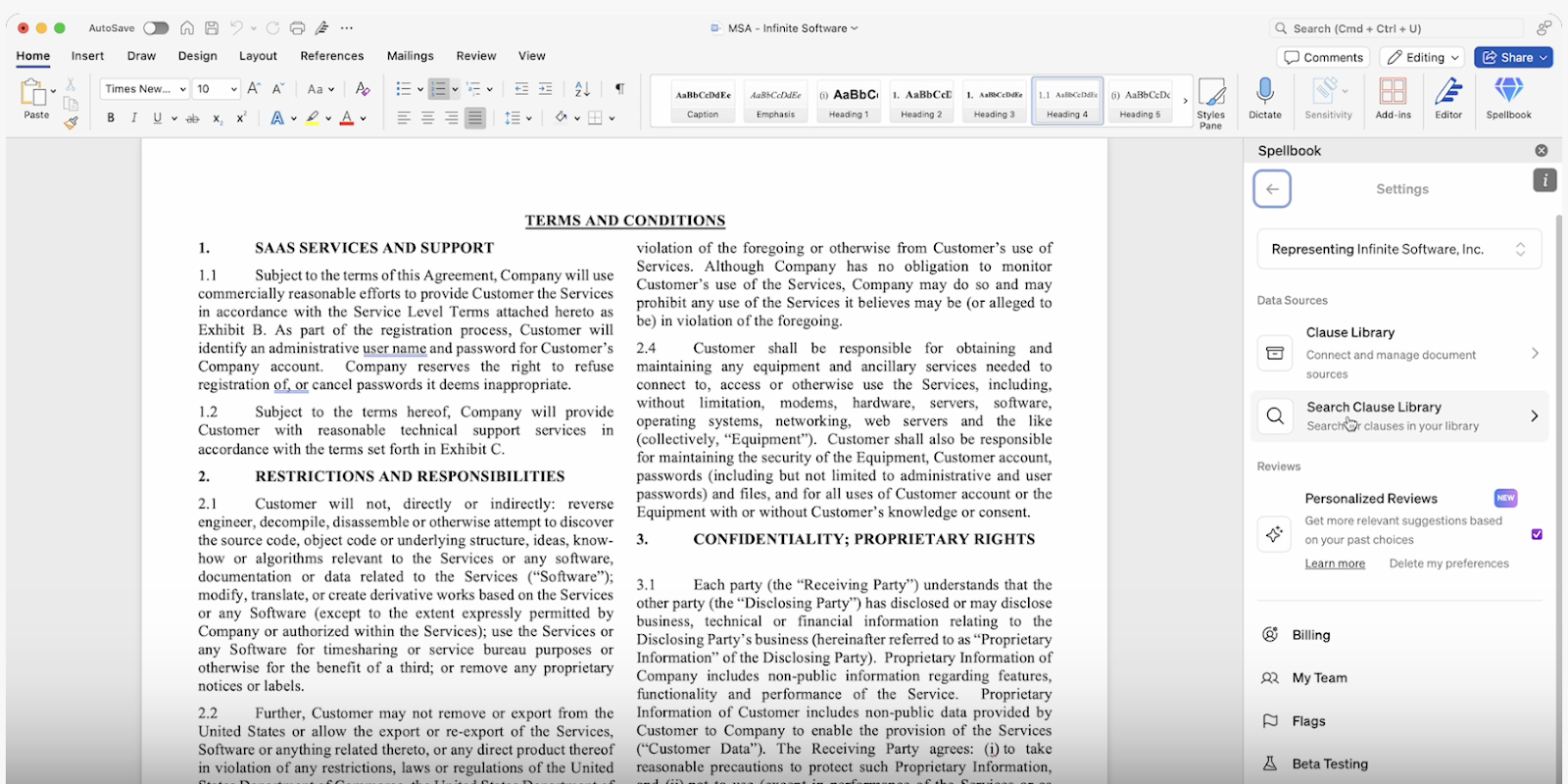
For example, search for keywords that match a clause you’re looking to include in a contract. Here, we searched for ‘confidentiality.’
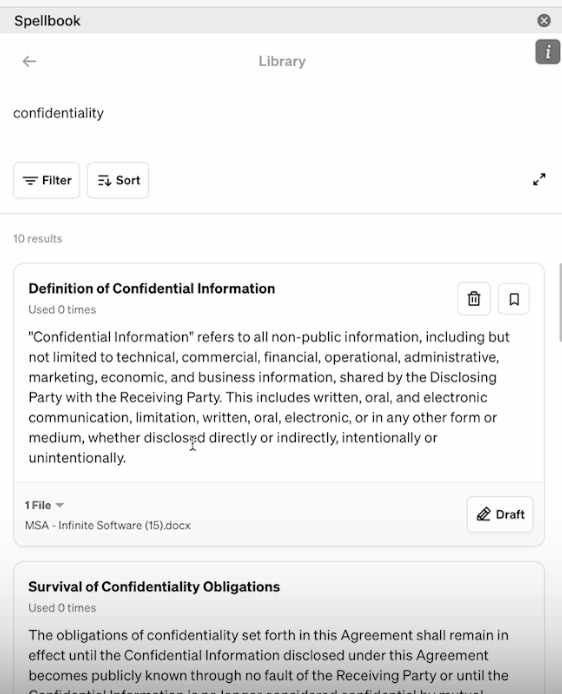
Spellbook offers multiple confidentiality clauses. When you find the appropriate option, click ‘Draft’ to insert the clause into your document. Then, repeat the steps to complete your document.
Compared to traditional manual drafting, legal AI technology does the writing process for you while maintaining quality.
{{cta-surprise-red}}
2. Editing and Improving Legal Documents
Even the best legal professionals need a second set of eyes to review legal content for errors.
AI software such as Spellbook suggests language improvements and edits legal text for clarity and precision. It may suggest simple language to enhance readability or recommend the inclusion of new terms to add clarity and ensure compliance with legal requirements.

Image: Spellbook proofreads clauses to improve conciseness.
In fact, a study has shown that advanced AI techniques, including OpenAI embeddings and natural language processing (NLP), demonstrate unparalleled efficiency in document generation and comprehension. Researchers found that AI systems can:
- Address the complexities of legal documentation by detecting irregularities.
- Optimize legal content for readability by incorporating utilities to handle document intricacies.
- Enhance the quality of legal writing and offer transformative potential in ensuring document accuracy in the legal domain.
AI for legal documents is a byproduct of advanced technological innovations that enable the generation of accurate and adaptable documents, suitable for diverse legal systems.
3. Customization for Jurisdictional Requirements
Legal compliance requirements vary by jurisdiction, and formatting styles differ dramatically between regions. AI-powered legal writing tools like Spellbook automatically adapt language, terminology, and clause formatting to match specific jurisdictional standards.
Real-world impact: Annie Haggar, a lawyer at an Australian tech firm, previously spent hours manually converting American-style contracts (all caps, U.S. terminology) to Australian standards. With Spellbook, she saved 25-30% of her time. "It's quite good at formatting and writing clauses in Australian style, not just in the terminology Australians use versus Americans, but in how we format our clauses. It has picked up on all of those nuances," Annie says
4. Automating Repetitive Writing Tasks
Drafting legal documents can be time-consuming. AI lets you automate legal drafting to create standardized NDAs, employment agreements, and more.
Spellbook auto-fills pre-built templates with client-specific details, allowing you to speed up the process and reduce human error.
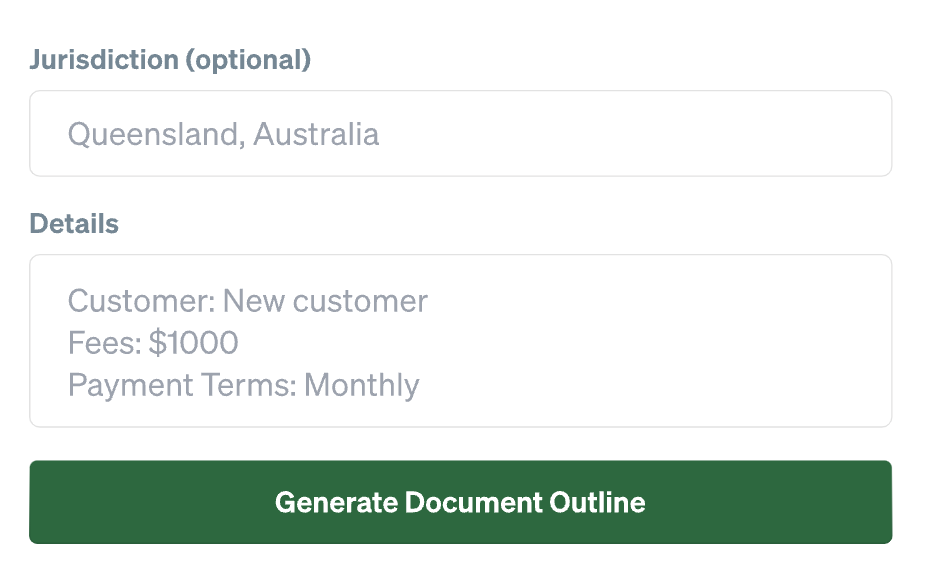
Simply fill in your client’s details at the start, and Spellbook can generate a document that fits your client's specific needs. AI is like a tireless paralegal who rarely errs. It continuously generates, formats, and validates legal documents.
Benefits of Using AI-Powered Legal Writing Tools
Why spend hours drafting legal documents when AI can do it in minutes without sacrificing quality or accuracy? Here’s how using AI legal writing tools helps you:
- Saves Time: AI can automate contract drafting, legal research, and legal document review.
- Improves Accuracy: AI spots errors, validates legal terminology, and formats legal documents to industry standards.
- Enhances Efficiency: AI provides data-driven insights for faster, more informed decision-making.
Justin Monahan, a mixed-practice lawyer at KMSC Law, used Spellbook to draft a mutual early termination of a farm lease. He said, “It gave me the base document. After a few commands to fill in the gaps, the agreement was done.”
Without Spellbook, Justin would have needed to draft the termination agreement manually. He said Spellbook saved him at least an hour, maybe more.
Ethical and Practical Considerations of Using AI Legal Writing Tools
Integrating AI isn’t just about adopting new technology. It’s also about using AI ethically and effectively.
A mid-sized law firm learned this firsthand when skeptic employees resisted the use of an AI-powered document review system, citing concerns about errors and inconsistencies in AI-generated content. The firm held workshops to help legal professionals understand the limitations and benefits of AI, as well as how to utilize the appropriate tools to streamline their workflows. Within a year, the firm cut review times by 25% and boosted productivity by 20% for AI-approved clients.
When using AI, consider:
- Importance of Human Oversight: Always review AI-generated content to ensure it meets legal requirements and the desired quality standards.
- Data Privacy and Security: Select tools that comply with data protection laws and secure sensitive data with encryption.
- Ethical AI Use: Be transparent and inform clients that you used AI to aid legal work.
Remember, use AI wisely. Prioritize oversight, security, and transparency to enhance efficiency without compromising trust.
{{cta-surprise-red}}
Frequently Asked Questions
How Accurate are AI Legal Writing Tools?
The accuracy of AI legal tools depends on the quality of the data, the algorithms used, and the training models employed. High-quality AI software, such as Spellbook, ensures precise and accurate legal text generation.
Is Legal Writing AI Software Secure?
Yes. Reputable AI legal tools adhere to the GDPR and CCPA to ensure confidentiality. Verify encryption, secure storage, and access controls to protect legal data.
How Do AI Legal Writing Tools Differ from General AI Writing?
Legal specific tools are trained on contract language, regulatory standards, and industry drafting conventions. They understand legal structure and risk considerations, unlike general writing AI, which often produces vague or non compliant legal language.
What Makes Spellbook Different from Other AI Legal Writing Tools?
Spellbook completely eliminates copy-paste workflows because it integrates directly into Microsoft Word. Built specifically for transactional law with contract-first training, it offers clause libraries, industry benchmarking, and redlining capabilities. Trusted by 3,000+ law firms, including teams at eBay, Nestlé, and Crocs, Spellbook delivers legal-specific AI rather than general-purpose text generation.
Does Spellbook Support Different Practice Areas and Jurisdictions?
Yes. Spellbook adapts to various contract types across transactional practice areas, including M&A, corporate, employment, and commercial agreements. It automatically adjusts legal language, terminology, and formatting to match jurisdictional requirements, from U.S. to Australian to European standards. All without manual translation.
Do AI Legal Writing Tools Work with Microsoft Word?
Yes. Tools like Spellbook integrate directly into Word, allowing lawyers to draft, edit, compare, and benchmark clauses without switching platforms, reducing friction in existing workflows.
Thank you for your interest! Our team will reach out to further understand your use case.






